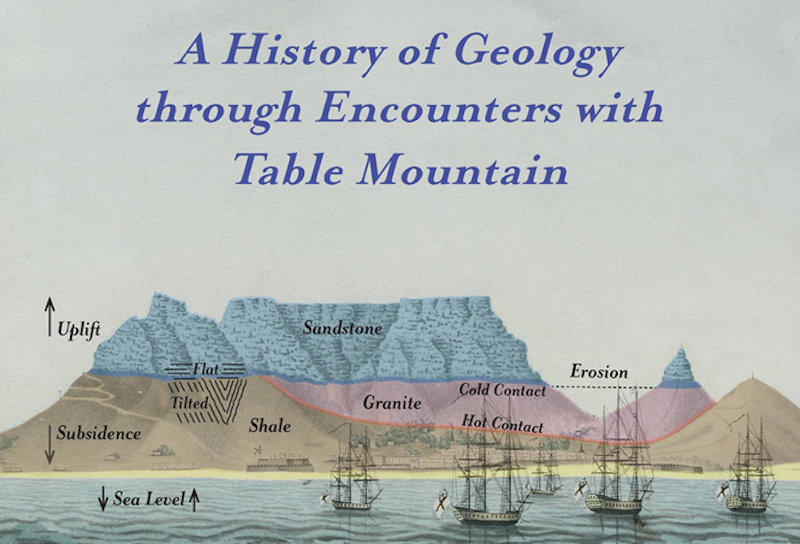
John S Compton explores how early visitors to the Cape interpreted Table Mountain and its landscapes and rocks. He believes the talk, and a book he has written on the subject, would be of broad appeal to those interested in history, both the deep past of geology and the more recent historical past. You can find out more about his books by visiting his website: johnscompton.com.
John S. Compton is Emeritus Associate Professor in the Department of Geological Sciences at the University of Cape Town. He received his bachelor’s degree from the University of California, San Diego, in 1981 and his PhD from Harvard University in 1986. Over the last 30 years he has worked with students and colleagues on many different aspects of the local geology. He established Earthspun Books in 2016 to publish popular science books on the natural history of the region.
"Towering above the city of Cape Town, Table Mountain has a tumultuous story to tell that extends back over 500 million years. The iconic landmark at the southwestern tip of Africa has been a welcome sight to locals and overseas visitors for more than 500 years. One of the most-climbed mountains in the world, Table Mountain has inspired many to record their thoughts and impressions. While the rocky massif has remained virtually unchanged, people’s perceptions of it have changed dramatically. The written records of those who encountered Table Mountain reveal how we learned to read the deep history of the region in parallel with the development of geology as a science. Interpreting Earth chronicles the evolution of how we think and feel about mountains.” - Emeritus Associate Professor John S. Compton.
- Date: 8 February 2024
- Venue: The Fish Hoek Valley Museum, 59 Central Circle, Fish Hoek
- RSVP: fhvhistoricalassociation@gmail.com
Disclaimer: Any views expressed by individuals and organisations are their own and do not in any way represent the views of The Heritage Portal.
